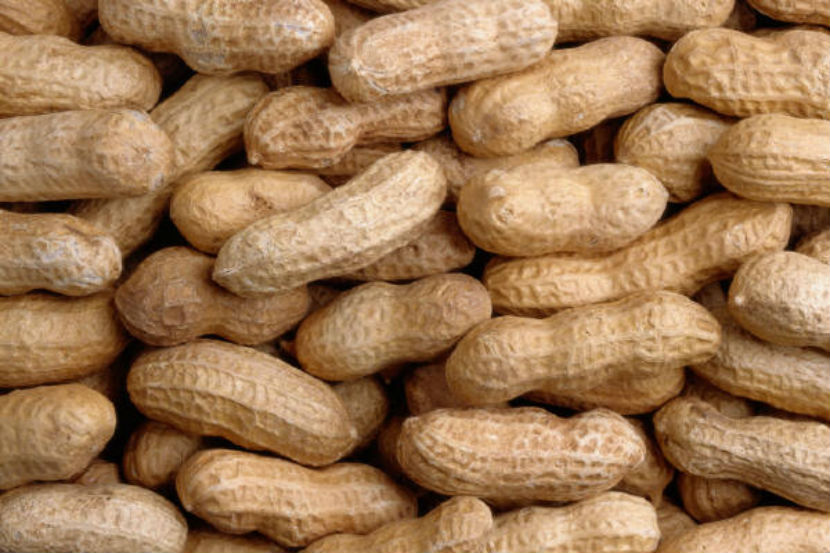
What is a peanut allergy?
What are the signs and symptoms of an allergic reaction?
Do kids with a peanut allergy have the same symptoms as adults?
Can kids outgrow peanut allergies?
If I am allergic to peanuts, can I eat tree nuts?
If I am allergic to peanuts, can I eat peanut oil?
Do you have a list of foods that contains or may contain peanuts?
What is a peanut allergy?
A peanut allergy is a reaction that involves your body’s immune system. When you have a peanut allergy your immune system thinks that the peanut proteins are harmful and triggers different symptoms.
Peanuts are one of the nine most common food allergens in Canada. The other eight are: wheat, tree nuts (such as almonds, Brazil nuts, cashews, hazelnuts, macadamia nuts, pecans, pine nuts, pistachio nuts, and walnuts), sesame seeds, milk, eggs, seafood, soy, and sulphites (a food additive).
What are the signs and symptoms of an allergic reaction?
An allergic reaction to peanuts can happen within minutes or up to several hours after eating foods containing peanuts. Symptoms vary from person to person, and may progress from mild to severe. A person experiencing a peanut allergy may have any one or a combination of these symptoms:
Mild signs and symptoms
-
flushed face and body
-
itchy eyes, nose, face and skin
-
tingling, numbness or pain in the lips and tongue
Moderate to severe signs and symptoms
-
swelling of the eyes, face, lips, throat and tongue
-
hives
-
cramps, diarrhea, vomiting
-
wheezing, coughing
-
weakness, dizziness
-
anxiety, distress, sense of fear and doom
Signs of anaphylaxis
-
difficulty talking
-
difficulty swallowing
-
difficulty breathing
-
drop in blood pressure
-
rapid heartbeat
-
unconsciousness
These are some symptoms of the most serious form of allergy called anaphylaxis. Anaphylaxis can be life-threatening and requires immediate medical attention.
Do kids with a peanut allergy have the same symptoms as adults?
The symptoms are the same, but kids may have a different way of describing them.
Young children may put their hands in their mouth, or try to pull or scratch their tongues. Their speech may become slurred, hoarse, or squeaky.
Here’s what your child might say if he/she is experiencing a reaction to peanuts:
-
“This food is too spicy.”
-
“My tongue is hot/burning.”
-
“It feels like something is poking my tongue.”
-
“My tongue/mouth is tingling/burning.”
-
“My tongue/mouth itches.”
-
“My tongue feels like there is hair on it.”
-
“My mouth feels funny.”
-
“There’s a frog in my throat.”
-
“There’s something stuck in my throat.”
-
“My tongue feels full/heavy.”
-
“My lips feel tight.”
-
“My ears feel like there are bugs in there.”
-
“My throat feels thick.”
-
“It feels like a bump is on the back of my tongue/throat.”
If you think that your child is having an allergic reaction, take him to your doctor or the hospital immediately.
Can kids outgrow peanut allergies?
It was once thought that peanut allergies would last a lifetime. Today, studies suggest that about 20% of children diagnosed with a peanut allergy can outgrow it. Always talk to your allergy specialist first before re-introducing peanuts or peanut products back into your child’s diet.
If I am allergic to peanuts, can I eat tree nuts?
Tree nuts such as almonds, Brazil nuts, cashew nuts, hazelnuts, pecans and walnuts grow on trees, and do not belong in the same family as peanuts. In fact, peanuts are a member of the legume family along with lentils, dried peas and beans.
However since foods made with tree nuts (such as a can of mixed nuts) may also contain peanuts, they should be avoided.
To be safe, you should read the label on all products containing tree nuts if you have a peanut allergy and especially if you’ve had an anaphylactic reaction to peanuts.
Note that if you have either a peanut or tree nut allergy, it is usually still safe to eat legumes - but you should discuss this with your allergist to be sure.
If I am allergic to peanuts, can I eat peanut oil?
No. To be safe, it is recommended that people with peanut allergies avoid using peanut oil or eating foods made with peanut oil.
Do you have a list of foods that contains or may contain peanuts?
Stricter Canadian guidelines require that peanut-containing products are clearly labelled. The ingredient list will say “contains: peanut” if it contains this ingredient.
Click here for a list of foods that may contain peanuts.
If you’re not sure if a food may contain peanuts, always call the food manufacturer.
And remember, products are always changing. This means that some of your favourite foods that used to be peanut free may not be the next time you purchase them. Always read the ingredients list to be safe.
For more Unlock Food articles on allergies:
Food Allergies & Intolerances
Peanut-free Lunches and Snacks
Canadian websites to help you with the prevention and treatment of allergies:
Peanuts - One of the nine most common food allergens, by Canadian Food Inspection Agency
Peanut Allergy – What you need to know, by Allergy and Asthma Info Association
Food Allergy Canada
Last Update – April 25, 2018